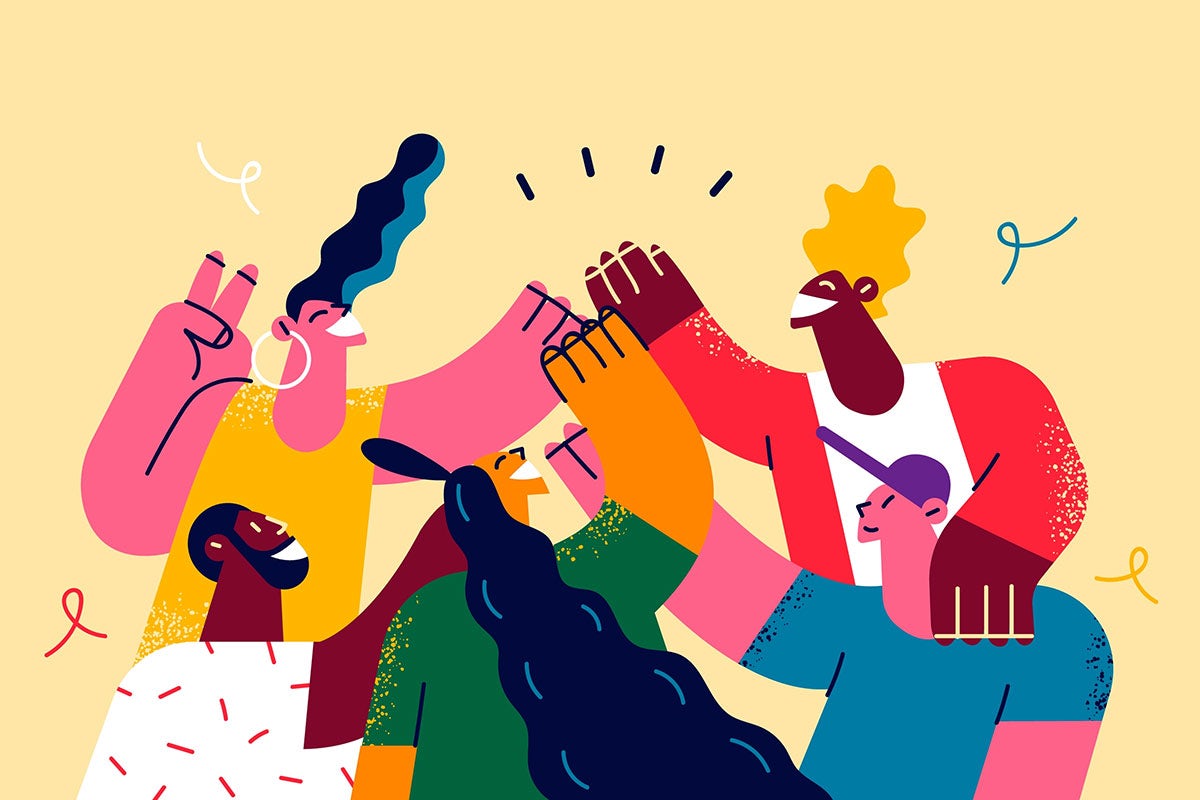How to gain confidence and improve your pitching skills
Working in advertising and design requires the ability to sell your ideas. If you’re naturally more reserved or in a junior role, how do you manage the expectation to be a confident pitcher, presenter and networker? CR asks those in the industry for some advice
In the worlds of advertising and design, a big part of the job is to sell, which requires a certain amount of self-assurance to convince people you’re the one that can do the job. The ability to convey your ideas, thoughts and suggestions requires a certain level of confidence, and while this may come with experience there are some people who find it comes more naturally than others.
So what if you’re someone who is more reserved or would class themselves as an ‘introvert’? Is the industry as welcoming to someone with those qualities? For some, it’s not about whether you’re outgoing or not, but instead if you have enough conviction in what you want to say. “As a creative selling an idea, an abstract concept is harder than pure facts and figures, so I think a lot of the time confidence in the idea and enthusiasm for it is needed,” says Sim Sidhu, creative and art director at BBH. “However, for me having confidence and being extroverted are two slightly different things, and I think confidence in the idea is the most important.
“I think you can pretend to be an extrovert, but it stems from confidence in the work,” she adds. “If you yourself are convinced and have a POV then you’ll be able to sell it. Having a point of view doesn’t mean you need to be extroverted. It means your idea will be bulletproof and clients (and others) will smell that a mile away.”

GIVE PEOPLE TIME
Even if you are confident in your ideas, sometimes a deeper level of self-belief still takes time to develop. If you’re just coming into the industry this can be difficult as the expectation to be a brilliant speaker or have top notch presenting skills can be daunting.
“It reminds me of that classic meme I keep seeing over and over again: ‘Recruiting new graduate intern roles with 10+ years experience’. The only way people will get experience is if you let them in to try it out. With a bit of support from creative directors and other departments, fresh, different and diverse talent has full potential to thrive in the industry,” says Sidhu. “However, I think we are so very far away from that. I think ways of working and cookie cutter models of process really have to change and evolve to set this industry up to really support diverse talent.”
Sidhu was part of the BBH Barn programme in 2022/23, the course famous for being an “ad school in an agency” set up by the late Tony Cullingham, and now being continued by former BBH CCO, Nick Gill. She believes the programme provided her with a better awareness of how intense and full-on the industry can be. “Barn was really great for helping us to think simply and respond to a brief in rapid time. Tony Cullingham always was an advocate of working to one-hour deadlines so we’d be very well equipped for the very real time pressures we are under on live briefs in the real world,” Sidhu explains.
But she highlights that exercises like this aren’t just for the beginning of your career, and that it’s about continually nurturing those skills. “Agencies need to continue to invest time and money into supporting this new talent, otherwise it’s a completely alienating and lonely place, often pushing this talent that’s so massively needed out.”

New York-based Sarah Watson, who has previously held leadership positions in the ad industry and now works with creative founders, coaching them to unlock their talents, says to try not to limit or label yourself too narrowly as an ‘introvert’ as it can “conceal the wisdom” of what’s really going on.
“I’ve seen lots of people who are nervous to speak, not because they are shy, but because they genuinely aren’t confident of what they are ‘supposed’ to be saying. Again, not because they are ‘lacking in confidence’ but because they are deep thinkers who don’t want to take up space for the sake of it,” she notes.
“In cases like this the work is not to just ‘speak up’ but to connect with the legitimacy of your own reticence. Some people only speak when they feel the answer very deeply – and these people command a lot of authority vs the more ‘confident’ speakers.”
FINDING YOUR VOICE
If you have the space to grow, Watson says whatever your confidence level, it all comes down to finding your voice. “It took me seven years to find mine when I was in the industry. Everyone’s voice is different, and especially if you are on the introverted side it can take a while,” she notes. “I had to hear other people who spoke like I wanted to, and then try out different approaches for myself.”
For Watson it’s all about putting in the time to find a ‘voice’ that is truly your own. “If you are being asked to speak up and don’t feel comfortable, drop any shaming ‘shoulds’ and think deeply about truly why that is. You will learn something important about yourself.”
This links to trusting your gut which is something that Sidhu and her creative partner Katy David have been leaning into more recently, after a year and a half in the industry. “Again, I think it does come with a bit of learning and interrogation, which we’re still working out, but I think it’s mainly experience,” she says. “You definitely notice the conviction in how more experienced creative directors or heads of department navigate the process and it’s impressive to watch, something I hope to get to.”

PRACTICE MAKES PERFECT
Having conviction in your ideas and then being able to translate and communicate them to others is fairly vital for the industry, but for Sidhu practice has been key to building her confidence. “Even when I don’t want to present, I think that’s the best time to try and push myself and go for it. Before a presentation I remind myself of the brief and proposition and always try and practice the presentation a few times before actually doing it,” she notes.
“I’ve definitely fumbled a few times, but everyone is human. I think getting the chance to explain your ideas and get excited about them in front of your creative directors, and then the rest of the wider team, is super important too.”
HOW CREATIVE LEADERS HELP THEIR TEAMS
Watson says it’s a fundamental role of those in leadership positions to help those around them to find their voice, and they need to create an environment where people feel safe to speak up. “More than that, great leaders witness the signs of a new voice emerging. They say things like: ‘It was great when you said that, it felt really important – you should do that more often.’ They actively point it out and invite the voice into the conversation,” Watson explains.
For Sidhu, she’s had multiple experiences early in her career with creative directors who have created a “safe space” to be vulnerable, honest and encourage all ideas, which she believes is important for more junior or reserved creatives.

“I think it’s up to creative directors in an agency when working with more reserved teams to ensure they feel safe to ideate and present. And give feedback! If junior creatives deliver some great ideas, then it’s up to CDs to empower them, and help them with presenting,” she says.
Ultimately if you’re more introverted or feel as though you’re lacking in confidence, it’s not about forcing yourself to become the loudest in the room, but rather to harness those other qualities to your advantage. “I think listening allows us to be more analytical and often a lot more lateral in the ideation process, as we have more nuanced insights, from keeping our ears open, as opposed to our mouths,” reflects Sidhu. “Yes, there is definitely an element of performance that comes with this industry, but I think there is room for both in our industry.”




